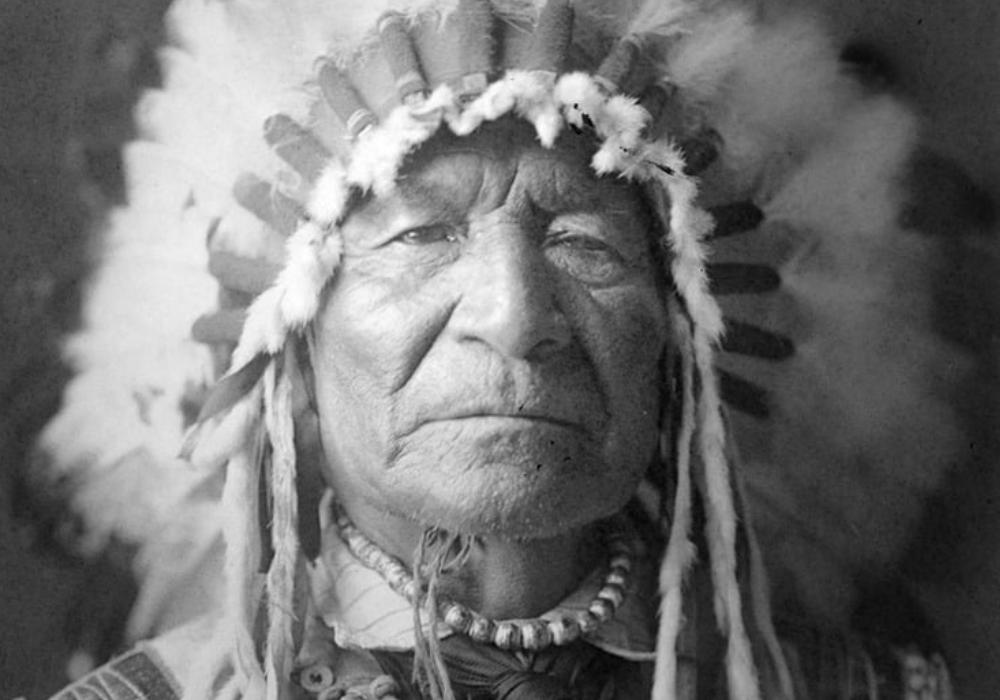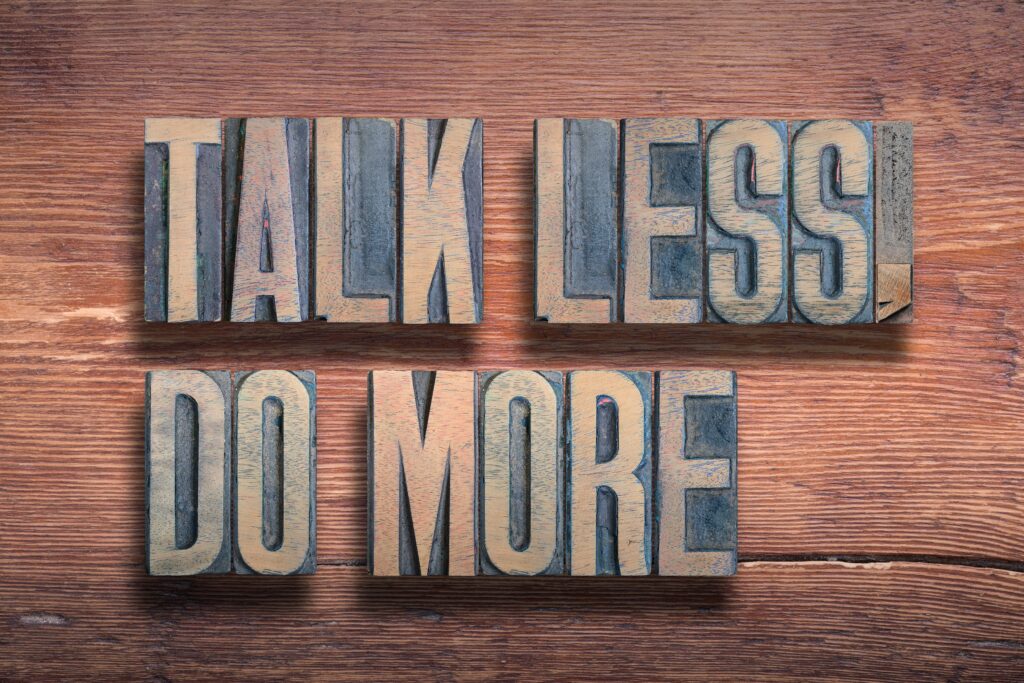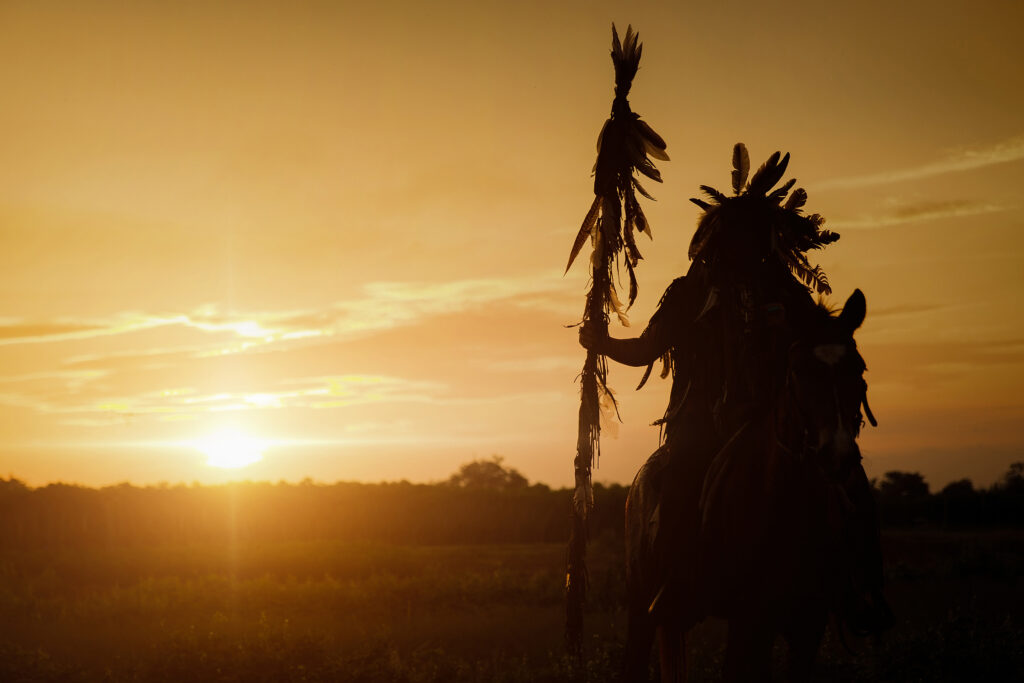Discover how ancient wisdom offers the perfect solutions for the chaos of modern life.

You won’t believe how much wisdom is packed into these ancient Native American sayings. In a world that feels more complicated, demanding, and disconnected than ever before, these timeless proverbs cut through the noise and offer clarity. Their messages, rooted in community, nature, and inner harmony, speak directly to many of the struggles we face today. These aren’t just poetic words—they’re practical, grounding, and profoundly illuminating.
1. “We do not inherit the Earth from our ancestors; we borrow it from our children.”

This one hits hard, doesn’t it? It’s a gentle yet powerful reminder that our time here is temporary, and the Earth isn’t ours to own—it’s a gift on loan. Every choice we make about how we treat the land, the water, and the air doesn’t just affect our present; it creates the conditions for future generations. Thinking this way gives more weight to the everyday decisions we make—what we buy, how we consume, how much we waste. It reframes responsibility as an act of love for those who come after us.
It also urges us to move away from short-term thinking. We’re not just living for today; we’re shaping tomorrow’s possibilities. From protecting biodiversity to rethinking how we travel and use resources, this proverb challenges us to honor a deeper form of stewardship. It’s not about grand gestures, but about building habits of care, awareness, and humility. When we start seeing the planet as a shared legacy instead of a personal asset, everything changes.
2. “It is better to have less thunder in the mouth and more lightning in the hand.”

Talk less, do more. In a world where shouting opinions online is easy, this saying grounds us in the importance of action. Words can inspire or impress, but they lose their meaning without follow-through. It’s far more powerful to be someone who does what they say, quietly and consistently. Whether you’re advocating for justice, keeping a promise, or helping a friend, action is what builds trust and changes lives. This isn’t just about humility—it’s about integrity.
It also reminds us of the difference between noise and impact. You don’t need to be loud to be effective. Quiet strength, deliberate movement, and consistent efforts carry more force than the flashiest declarations. When you’re grounded in purpose, your actions naturally shine. Living this way makes your presence felt, not just your voice heard. Let your life be the message, not just your mouth.
3. “When you were born, you cried, and the world rejoiced. Live your life so that when you die, the world cries, and you rejoice.”

This beautiful saying invites a deep look at how you’re living your life and the legacy you’ll leave behind. It’s not about how many achievements or possessions you collect, but about how deeply you’ve touched the lives of others. Are you kind? Are you generous with your time, your wisdom, your love? These are the things that echo after we’re gone. To live so fully and with such meaning that others mourn your absence is perhaps the clearest sign of a well-lived life.
And on the flip side, imagine the peace of facing the end with joy—because you know you gave it your all. You loved well, forgave freely, grew through pain, and left people better than you found them. It’s an invitation to live more intentionally, to care more deeply, and to measure success by the richness of our relationships and the depth of our impact. What you build in others is what endures.
4. “Don’t let yesterday use up too much of today.”

It’s easy to get stuck in the past, especially if it’s filled with regrets, mistakes, or missed chances. But this proverb is a gentle wake-up call reminding you that what’s gone is gone—and dwelling on it costs you the only thing you truly have: the present moment. Carrying the weight of yesterday leaves you distracted, discouraged, and disconnected from the opportunities in front of you. It robs you of joy, creativity, and peace.
Instead, try to see today as a fresh start. Each sunrise is a new chance to realign, to choose differently, and to create something better. The more you release old narratives and pain, the more space you have for healing, hope, and growth. You’re not defined by your past—you’re shaped by how you rise from it. Let today be the focus, not yesterday’s shadow.
5. “Seek wisdom, not knowledge. Knowledge is of the past; wisdom is of the future.”

There’s a huge difference between knowing facts and understanding life. Knowledge can be collected—books, data, opinions—but wisdom comes from lived experience and thoughtful reflection. It’s what helps you discern right from wrong when there’s no clear answer. It’s what guides you through hard choices and complex emotions. Wisdom is rooted in awareness, compassion, and a long view of life.
This proverb urges us to go deeper than just learning new things—it pushes us to apply what we know in meaningful ways. Wisdom doesn’t shout. It shows up in the quiet decisions, the thoughtful pauses, the willingness to listen and grow. It’s also timeless—what’s wise today was wise a hundred years ago. If you’re looking to build a life that’s not just smart but meaningful, seek wisdom first.
6. “Tell me, and I’ll forget. Show me, and I may not remember. Involve me, and I’ll understand.”

Learning isn’t passive—it’s active. This saying speaks to the power of experience in truly grasping something. You can hear a lecture or read an article and still forget the message. But when you engage, when you participate, the learning becomes part of you. It’s how we build not just understanding but transformation. When we involve ourselves, we grow.
It’s also a reminder for anyone trying to teach or inspire others: don’t just speak—invite others in. Create spaces for practice, reflection, and action. Whether you’re raising children, mentoring someone, or growing yourself, make it interactive. The more hands-on and heart-involved the process is, the more likely the lessons will stick and create lasting change.
7. “Everyone who is successful must have dreamed of something.”

Every great journey starts with a vision. This proverb is a powerful encouragement to keep dreaming, even when life gets practical, busy, or uncertain. Dreams aren’t childish—they’re the seeds of future realities. They give you something to strive for, something to believe in. Without them, we risk becoming stagnant or disillusioned. Success doesn’t happen without first daring to imagine.
Even if your dream shifts or evolves, holding on to a sense of possibility keeps your spirit alive. Dreams breathe energy into your actions and purpose into your days. And no matter how old you are, it’s never too late to dream a new dream. What you envision today can shape the rest of your life. So go ahead—what’s calling to you?
8. “Listen to the wind; it talks. Listen to the silence; it speaks. Listen to your heart; it knows.”

Not all wisdom comes through noise or logic. This saying is an invitation to slow down and tune in to the quieter channels of truth. Nature speaks, silence teaches, and your heart holds truths that the mind can’t always explain. In our loud, busy world, we forget how to listen deeply. This proverb calls us back to inner stillness and the messages that live there.
It’s also about trusting yourself. Your instincts, your intuition, your internal compass—they know more than you realize. When you pause long enough to really listen, you begin to hear what matters. Answers often come not through thinking harder, but through softening your attention and opening to what’s already present within you.
9. “Be like a tree, standing tall and strong, yet flexible enough to bend with the wind.”

This metaphor for resilience is both poetic and practical. Trees have deep roots, firm trunks, and flexible branches. They endure storms not by resisting, but by swaying with the wind. In the same way, we’re invited to anchor ourselves in our values and identity, but stay open to change, movement, and adaptation. Life will always throw us curveballs. Our survival depends on how we respond.
Being strong doesn’t mean being rigid. It means knowing when to stand firm and when to adjust. Growth often requires bending. The most resilient people are those who’ve learned to adapt without losing themselves. Let this proverb remind you that strength and softness can coexist—and together, they make you unbreakable.
10. “A frog does not drink up the pond in which it lives.”

This is a lesson in sustainability and respect in the simplest terms. A frog knows not to destroy its own habitat—and yet humans often forget this principle. We overconsume, overwork, and deplete both natural and personal resources. This saying reminds us that taking too much, whether from the Earth, from others, or from ourselves, creates imbalance and harm.
It’s also about self-regulation. Just because you can take more doesn’t mean you should. Wisdom lies in knowing how much is enough. When we live with mindfulness, we naturally begin to tread more lightly—on the planet, in our relationships, and in our choices. Sustainability isn’t just environmental—it’s a way of being.
